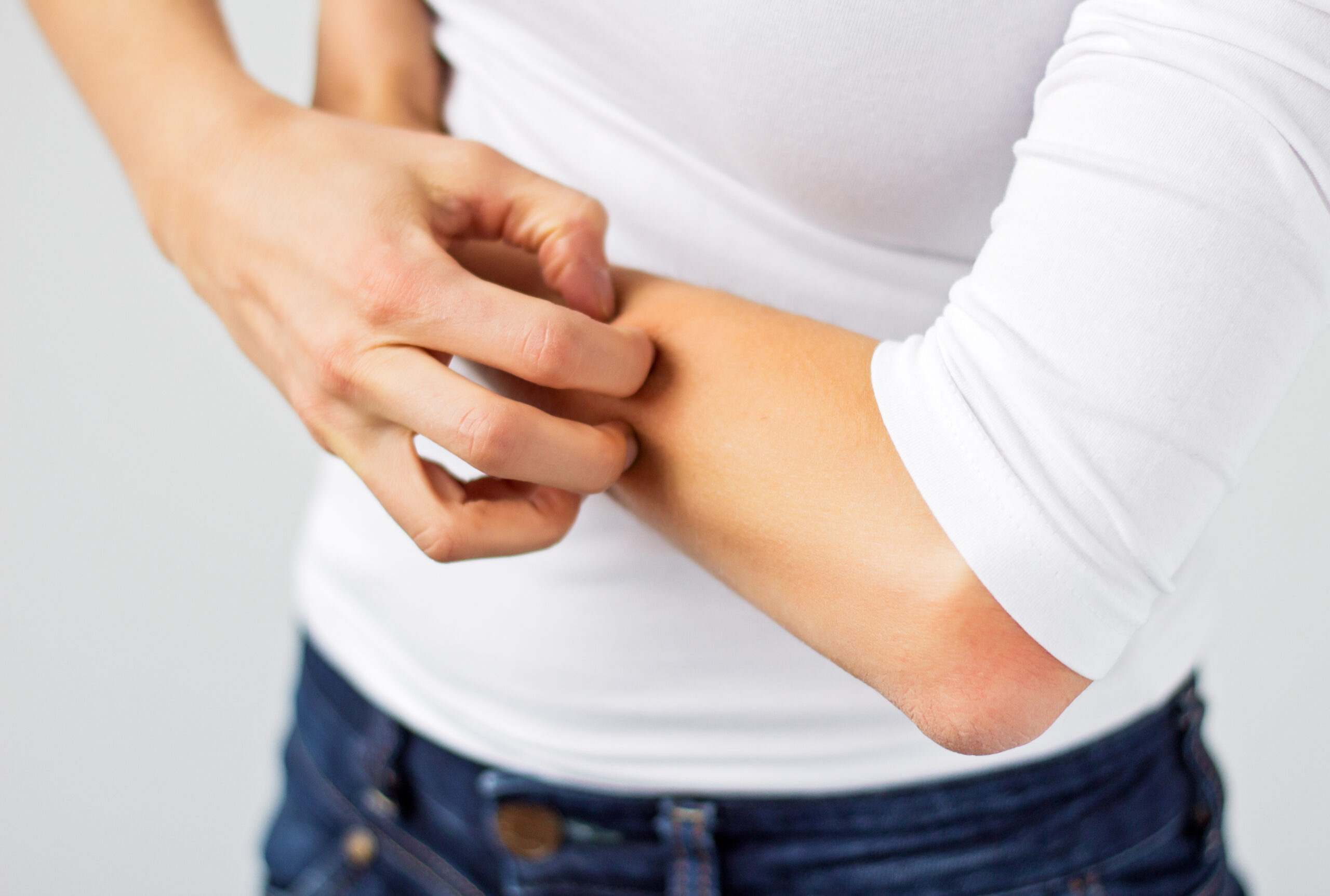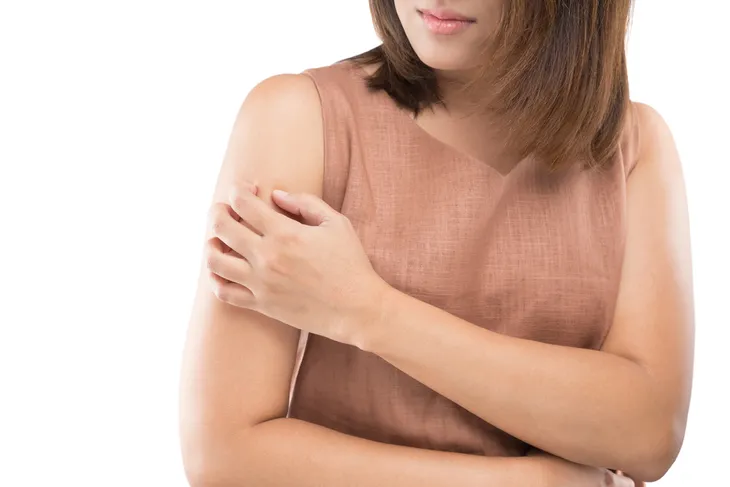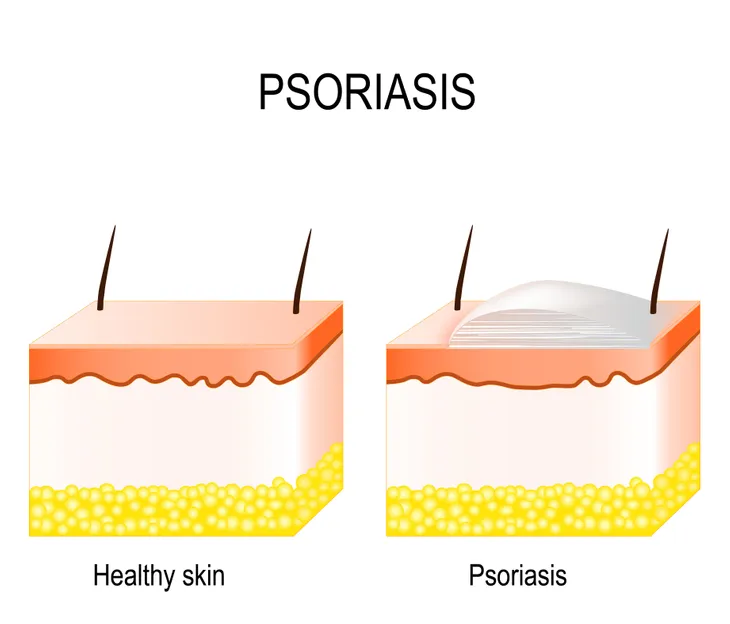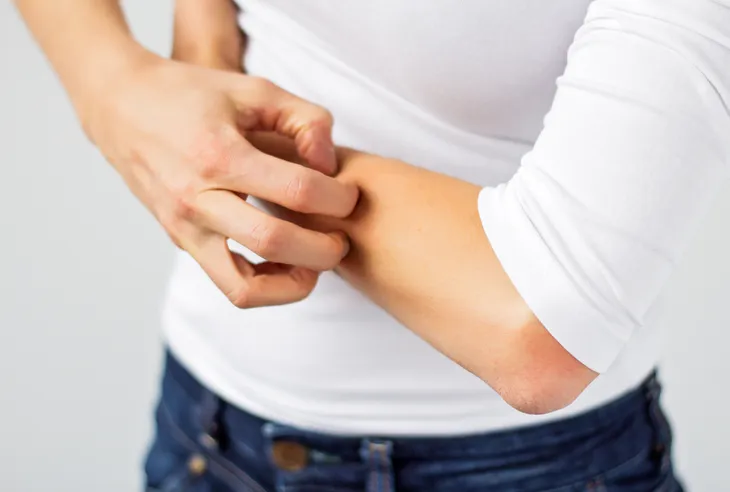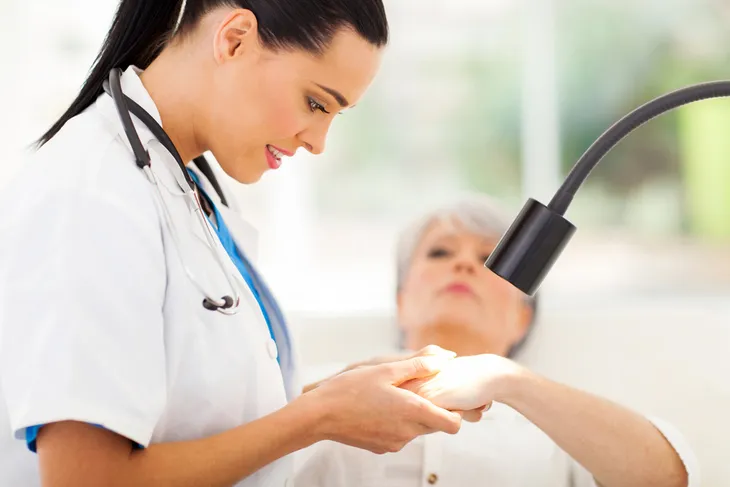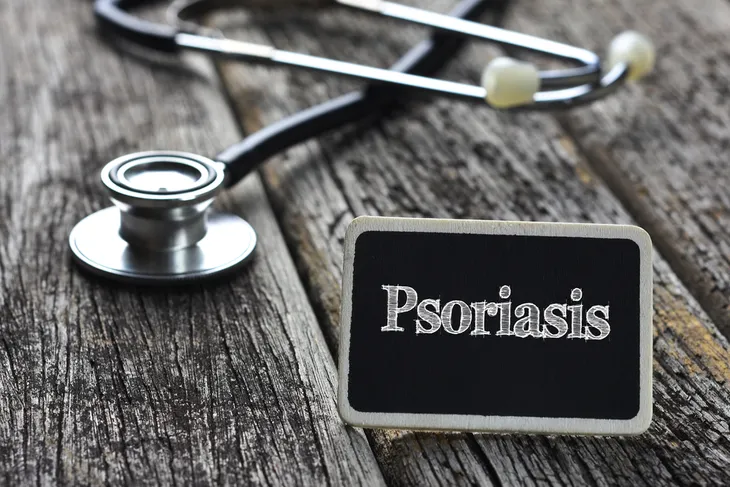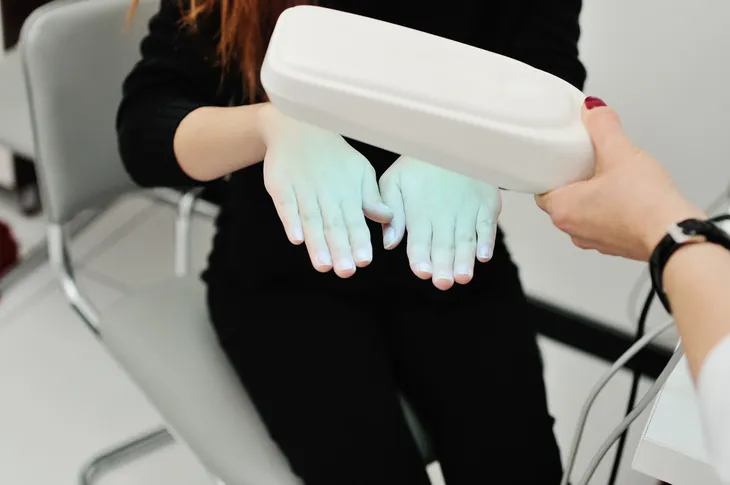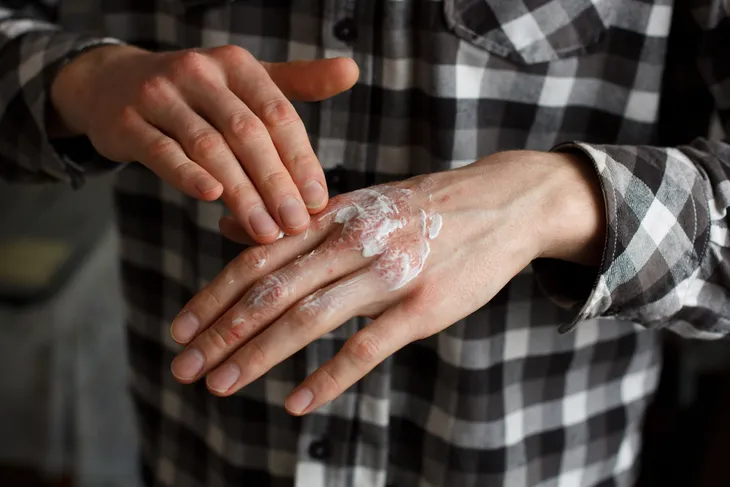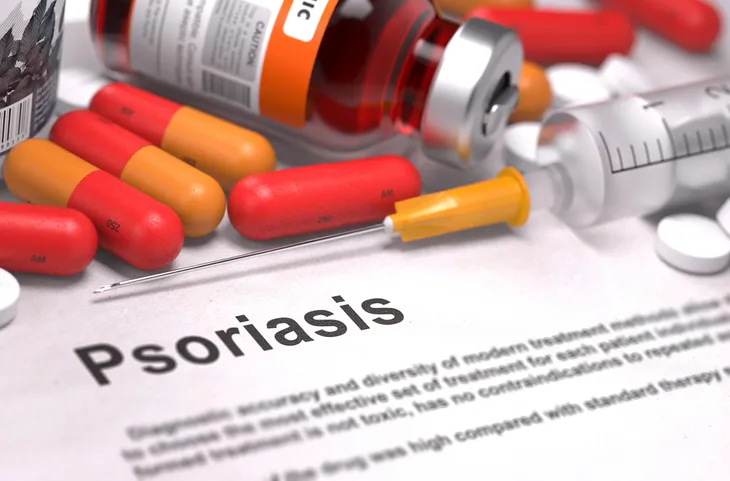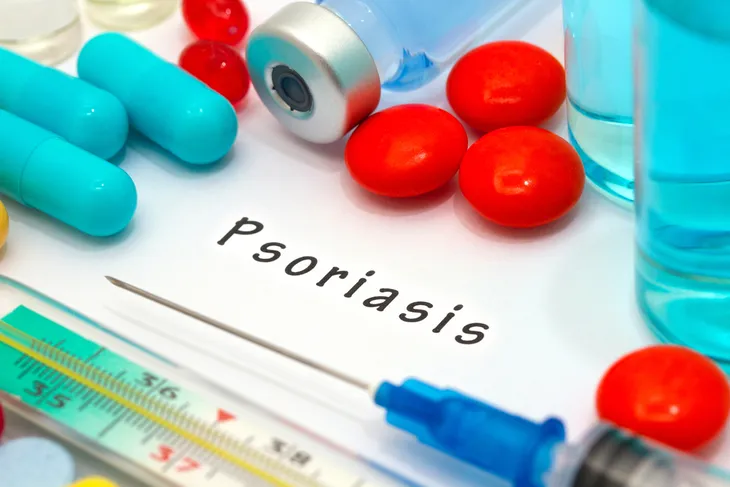Did you know more than 8-million Americans are affected by psoriasis? Psoriasis is a skin disease that can affect many areas of the body and plaque psoriasis is the most common form of the disease. Plaque psoriasis is usually associated with patches of rough, red skin and white scaley patches.
When someone has plaque psoriasis, their skin cells receive a signal to produce new skin cells very quickly. And this is what causes the build-up of the white scaley patches. Unfortunately, this disease is not curable. The good news is, plaque psoriasis is not contagious and there are ways you can manage the symptoms. Let’s dive in deeper and explore the signs, causes, and treatment options of plaque psoriasis.
Signs and Symptoms of Plaque Psoriasis
Plaque psoriasis often appears as raised and inflamed scaly patches. They’re usually red with a silvery-white buildup. This is called scale which is a buildup of skin cells.
The scaly patches often appear on the elbows, knees, lower back, and scalp. That said, they can really appear anywhere. Further, the plaques often appear symmetrically on the body, meaning they can appear on the same areas of the body on the left and right sides. Unfortunately, the plaques are often itchy and in some cases, painful.
Causes of Plaque Psoriasis
Doctors don’t know for sure why people get plaque psoriasis. What they do know, is that it’s an autoimmune disease. WebMD explains, “That means your immune system attacks healthy cells as if it’s fighting an infection.”
New skin cells usually grow every 28 to 30 days but if you have psoriasis, new cells grow every three to four days. The buildup of the new cells is what creates the silvery-white patches of psoriasis.
Furthermore, psoriasis may be hereditary. Meaning, parents may pass it down to their children. That said, only about 3-percent of people who are born with the genes get the disease. The good news is that plaque psoriasis is not contagious and cannot be spread by close contact or touch.
What Triggers Psoriasis Flare-Ups?
Did you know certain triggers can make the symptoms of psoriasis worse and can cause flare-ups? These triggers include emotional stress, skin injury such as a cut, infections that affect the immune system such as strep throat, as well as cold and dry weather.
Certain medications can also cause psoriasis flare-ups. This includes lithium (a common treatment for bipolar disorder), some beta-blocker medications that are used for high blood pressure and heart disease, and drugs that are used for malaria. Finally, drinking alcohol and smoking may also cause psoriasis flare-ups.
Diagnosing Plaque Psoriasis
If you think you have plaque psoriasis speak with your doctor. Many doctors can tell if the rough patches of skin are from psoriasis. But they may also require a biopsy or refer you to a dermatologist for a second opinion.
When you visit your doctor, make sure you show them all abnormal patches of skin. It would also be helpful to explain all your symptoms as well as possible triggers that irritate your skin. Most importantly, don’t try to diagnose or treat plaque psoriasis without speaking with your doctor.
Treatment Options for Plaque Psoriasis
Unfortunately, psoriasis cannot be cured. Thankfully, there are several treatment options available to help you manage this skin disease.
While the treatment won’t cure psoriasis, the goal is to help you have fewer flare-ups. Treatment options can range from medication to topical creams, light therapy, and more. Let’s explore these options next.
Light Therapy
One treatment option for plaque psoriasis is a light therapy using ultraviolet light. This treatment option is often used when the rash is more widespread. It’s also more appealing since it’s a nonpharmaceutical treatment.
Light therapy can be performed at your doctor’s office. They may also advise you to take a special lightbox home to continue the treatments. You may also get relief by spending time out in the sun. Make sure you speak with your dermatologist to ensure light therapy is a good option for you.
Topical Medications
If the psoriasis isn’t as widespread, and you only have a few plaques, your doctor may prescribe topical medication first. The topical medication is a cream that you apply directly to your skin.
The cream should help with inflammation and may help slow the growth of skin cells. Some examples of topical medications include corticosteroids, vitamin A and D, and anthralin. Other ingredients that may be able to help soothe your itchy symptoms are aloe vera, jojoba, zinc, capsaicin, and pyrithione. Your doctor will be able to recommend and prescribe the best creams for you.
Systemic Drugs
If your plaque psoriasis is severe, your doctor may recommend systemic drugs. This is a type of medicine that works throughout the whole body.
Systemic drugs can help calm your immune system and in turn, help your skin cells grow more slowly. That said, there are some side effects such as depression, liver problems, and it may put you at a higher risk of skin cancer.
If your doctor believes this is the best course of treatment they will prescribe the drugs. It will be given by pill or they may give you a shot.
Biologic Drugs
Biologic drugs are another kind of systemic drug that is designed to target your immune system. The drug is administered in a shot through a vein in your arm.
According to WebMD, “They affect a specific type of immune cell or keep certain proteins from causing inflammation.” Keep in mind, these types of drugs can make it harder for your body to fight infection.
How to Manage Plaque Psoriasis
Plaque psoriasis is not curable, and most people who get it will have it for the rest of their lives. The good news is, there are ways you can manage it. For starters, you’ll want to avoid the triggers that cause your flare-ups. You’ll first need to determine what these triggers are whether it’s cold and dry weather, alcohol consumption, smoking, or others.
In addition to following your treatment plan prescribed by your doctor and avoiding triggers, you should also eat a well-balanced diet. Try to include more foods that may help with inflammation such as fish, fruits, and vegetables.
Finally, get support. If your plaque psoriasis is taking an emotional toll, don’t be afraid to seek therapy or emotional support groups to talk with people who know what you’re going through.
